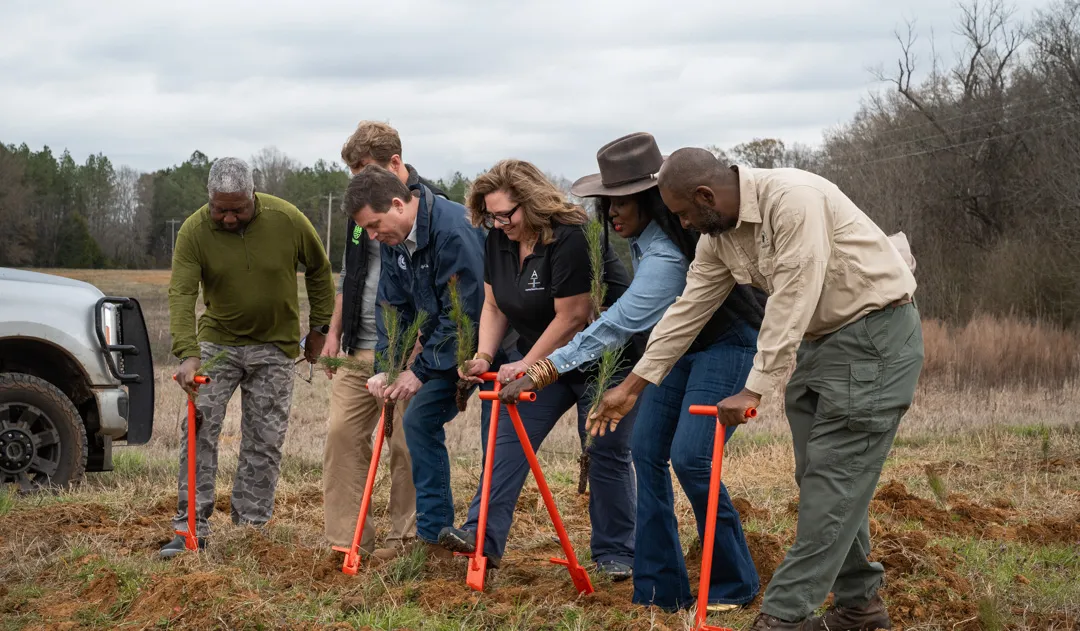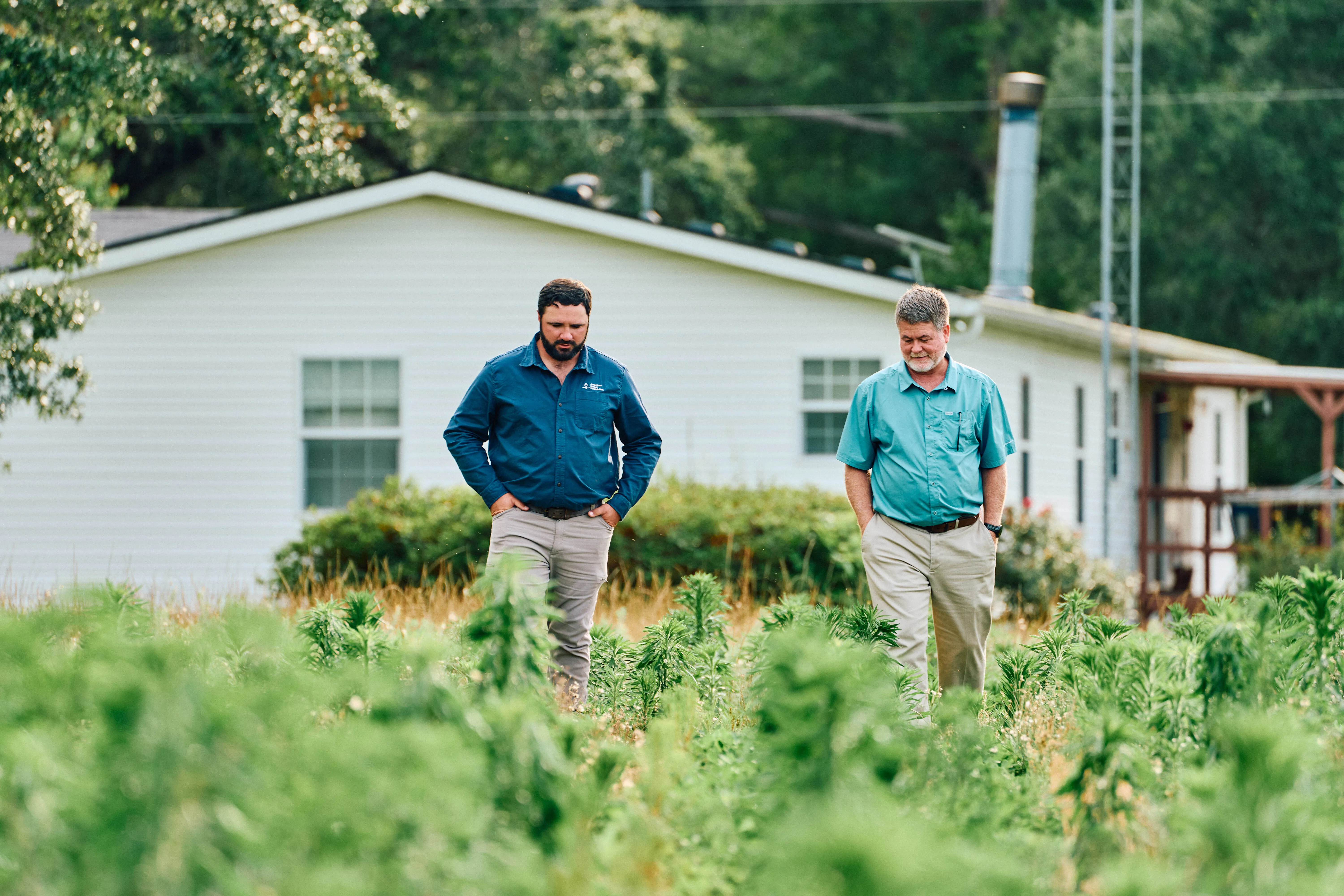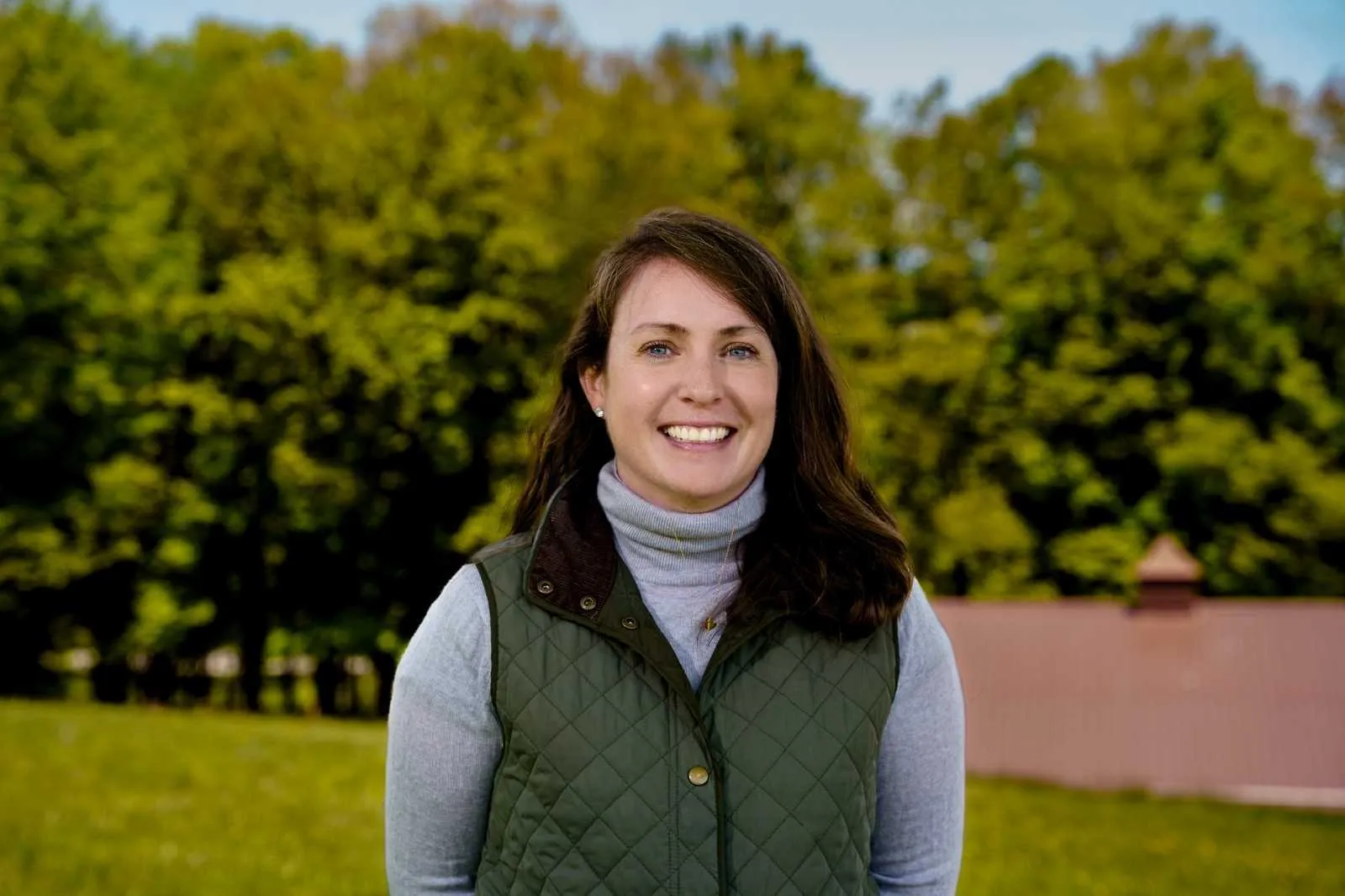Family Forest Carbon Program Opens Enrollment Across Pennsylvania, West Virginia and Maryland
The Family Forest Carbon Program to Offer Expert Resources and New Revenue Opportunity to Rural Forest Owners, Provide Credible Climate Benefits
WASHINGTON, D.C. (October 20, 2021) – The American Forest Foundation (AFF), a national conservation organization that works with family forest owners, and The Nature Conservancy (TNC), a global conservation organization, today announced expansion plans for their Family Forest Carbon Program, which empowers America’s rural family forest owners to improve forest health while addressing climate change.
The Family Forest Carbon Program will open enrollment to landowners with as little as 30 acres up to 2,400 acres across all of Pennsylvania, all of West Virginia and five counties in western Maryland; Garrett, Allegany, Washington, Frederick, and Carroll.
type: asset-hyperlink id: 3Im0JHL4V3SyO8AXtN0xH9collectively own the largest portion – 39 percent – of U.S. forests. However, less than one percent of the land in existing forest carbon projects are on properties under 1,000 acres in size. This is mostly due to high upfront costs, complexity and contract length.
“Family forest owners care about their land and want to do the right thing,” said Tom Martin, President and CEO of AFF. “But most run into roadblocks, like the high cost of management and finding the right technical assistance, that prevent them from taking active steps to improve their forest. The Family Forest Carbon Program is designed to be an all-around resource for small landowners – providing them with guidance and support, as well as funding to be able to achieve their goals and make a meaningful conservation impact along the way.”
The Family Forest Carbon Program provides payments to family and individual landowners with small forest holdings to implement scientifically proven forest practices that increase the carbon sequestered and stored on the land. In addition, the program provides expert consultation from foresters to every landowner and creates a forest management plan customized for the landowner’s property.
“We are glad to have found the Family Forest Carbon Program. Not only are they providing us a revenue stream to help cover the costs of maintaining our forest, but they helped us create a plan for the future to address invasive species, tree health, wildlife and climate change. I am thankful that we were able to become a part of it,” said Louise Hartman, a landowner enrolled in the program.
Landowners can log on to familyforestcarbon.org, select their property, and see if their forest conditions and personal goals match with the requirements for enrollment. Enrollment is being offered for one of two improved management practices: Growing Mature Forests by engaging in sustainable harvesting practices; or Enhancing Future Forests by improving new forest growth by managing invasive species and undergrowth. Landowners can make a 10- or 20-year commitment based on the forest practice adopted. Payments to the landowner are determined by property size and forest conditions.
“Pennsylvania's forests are a critical natural resource for both the communities that rely on them and the many species of plants and animals that call them home. The Family Forest Carbon allows small-scale forest owners to tap into carbon markets and keep forests healthy and connected,” said Lori Brennan, Executive Director of The Nature Conservancy in Pennsylvania and Delaware. “Healthy forests not only support the climate and local economies, they also protect clean water and provide vital habitat. We are excited to see this successful program expand further into Pennsylvania.”
“West Virginia has an incredible ecological, carbon and timber resource in its forests. Carbon markets are an effective mechanism to allow small-scale forest operations to tap into the economic opportunities linked to the carbon sequestration and storage potential of U.S. forests,” said Thomas Minney, Executive Director with The Nature Conservancy in West Virginia.
“Healthier forests not only produce more carbon and wood products, but they also maintain clean water and provide better habitat for fish and wildlife. We are excited to see this expansion based on years of hard work from those involved.”
“Western Maryland’s forests are a critical natural resource for both the communities that rely on them and many species of plants and animals that call them home. The Family Forest Carbon allows small-scale forest operations to tap into carbon markets and keep forests healthy and connected,” said Tim Purinton, Executive Director of the Maryland/DC chapter of The Nature Conservancy. “Healthy forests not only support the climate and local economies, they also protect clean water and provide better habitat for fish and wildlife. We are excited to see this successful program expand into Maryland.”
The carbon captured by enrolled landowners will be measured and verified through a new carbon accounting methodology developed by TNC and AFF under Verra’s Verified Carbon Standard that is on track to be approved by the end of the year. This new methodology advances the accuracy of the carbon calculation to ensure the program is providing a true climate benefit. The program then sells the carbon as verified carbon credits to companies who are taking a comprehensive approach to their climate goals—first reducing emissions before working to neutralize those they cannot eliminate.
The Family Forest Carbon Program was first launched in select counties in Pennsylvania in 2020. Beyond the Central Appalachian area, the program will expand to two new regions – the Upper Midwest and the Northeast in 2022.
Contact: Elizabeth Greener; (202) 253-1096; egreener@forestfoundation.org
About The American Forest Foundation
The American Forest Foundation (AFF) is a non-profit conservation organization that protects and measurably increases clean water, wildlife habitat, and sustainable wood supplies that come from family-owned forests. AFF works with landowners, partners, leading businesses, and policymakers to address key issues such as conserving biodiversity, reducing risk of catastrophic wildfire, and addressing the threat of climate change. To learn more about the American Forest Foundation and the Family Forest Carbon Program, go to www.forestfoundation.org/carbon.
About The Nature Conservancy
The Nature Conservancy is a global conservation organization dedicated to conserving the lands and waters on which all life depends. Guided by science, we create innovative, on-the-ground solutions to our world's toughest challenges so that nature and people can thrive together. We are tackling climate change, conserving lands, waters and oceans at an unprecedented scale, providing food and water sustainably and helping make cities more sustainable. Working in 76 countries and territories: 37 by direct conservation impact and 39 through partners, we use a collaborative approach that engages local communities, governments, the private sector, and other partners. To learn more, visit www.nature.org or follow @nature_press on Twitter.
Related Articles

February 12, 2026
Fields & Forests Plants its Millionth Tree
AFF celebrated the millionth planting on recently enrolled landowner Portia Fulford’s property near Montgomery, Alabama. AFF was joined by several key partners, including the Arbor Day Foundation, the Alabama Forestry Commission, the Alabama Forestry Association, Help for Landowners, and Funga.

February 11, 2026
Building Momentum & Impact: A Look Back at 2025
As we look back on 2025, one thing is clear: the Family Forest Carbon Program community continues to grow in both scale and impact. From enrolling new landowners to delivering verified carbon credits and expanding landowner support, this past year brought significant milestones for family-owned forests across the country.

February 3, 2026
Reflecting on 2025 and Looking Ahead
Happy New Year from the Family Forest Carbon Program team! It’s been a tumultuous year, to say the least, so I hope you’ve all been able to find some peace, prosperity and perspective enjoying your farms, fields, and forests with your families. As I reflect on our community, it’s clear we have so much to be grateful for.